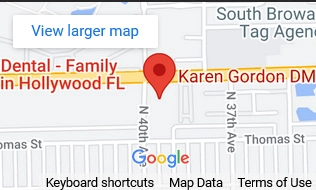Flossing : Why It Matters
We commonly hear our dentists emphasize the importance of flossing during checkups. This cord is used to remove the food and plaque stuck in between the teeth. It is important to floss, as toothbrushes don’t reach these areas where dental plaque or stuck food may still be. Sadly, only a few individuals follow this recommendation. Others would rather rely on toothbrush and mouthwash to keep their mouth clean.
The truth is that flossing is important to prevent a lot of dental problems. All you have to do is spare a few minutes to floss your teeth and you’re good.
Why Floss?
Flossing is important to keep your teeth and gums healthy. This is the reason why dentists advise their patients to floss regularly. If you wonder why flossing is important, then here are a few reasons that will convince you to floss.
Floss is an interdental cleaner which cleans the spaces in between your teeth. This procedure removes the plaque and food stuck there. When plaque and food remain there over quite a period of time, cavities result. The problem should be treated immediately to prevent further complication. Do not avoid flossing your teeth because you may end up with tooth decay or loss of your tooth.
Flossing prevents gum diseases and infection from occurring. Infections can cause discomfort in the mouth and affect chewing food. Over time, it may cause you to lose your tooth. Dental studies found a link of tooth decay and gum disease with heart diseases. Keeping your mouth healthy by brushing and flossing can help prevent this life threatening disease from harming you.
HOW OFTEN SHOULD ONE FLOSS?
It is recommended to floss at least once a day after brushing to remove the plaque and leftover particles that rest in between the tooth. You may choose to floss after eating or any time you feel that there is something stuck in between your teeth. What matters is that you floss daily.
WHAT FLOSS TO USE
If you notice, different types of floss are in the grocery or supermarket aisles. They vary in packaging and manufacturing and the materials they use.Typical dental flosses are made of nylon or plastic string. Products also use dental ribbon, instead, and are used for those whose gums are sensitive and bleed every time a person flosses.
Automatic flossers may be used if you do not really know the techniques of how to floss your teeth perfectly or it feels uncomfortable. The nylon filament of this kind of floss automatically removes the plaque and the food stuck in between your teeth.
Dentists might recommend something called F-floss and Y-Floss, depending on the angle of the handle, and these are considered picks. However, what’s commonly used is the string type of floss.
Some flosses are coated with fluoride, flavor or wax depending on the product. It is good to remember that it is not the floss that cleans the teeth but rather the technique does.
Due to the variation of flosses, it may be better if you consult this to your dentists. Karen Gordon, DMD and her dental staff are willing to discuss this matter with you. You are welcome to our office for a consultation regarding everything you need to know about flossing.
EFFECTIVE FLOSSING TECHNIQUES TO CLEAN YOUR TEETH AND GUMS
Being able to floss your teeth properly helps removes food and plaque stuck in between your teeth and gumline that toothbrushes do not reach. You really need to remove these particles to prevent gum diseases and tooth decay. It’s important then to properly floss your teeth. Knowing the techniques in flossing will help you effectively clean your teeth. They are; · Pull a string of about 18 to 20 inches long and wind them up on each of your middle fingers leaving only an inch or two of floss in between.
- Hold the floss between your thumbs and index fingers and slide it up and down in between your teeth.
- Curve it around the base of your teeth and make sure it lies in your gum line. Do this gently to prevent the string from snapping or bruising your gums.
- Change the sections of the floss to use the clean section on every tooth.
For further questions and tutorial on how to floss, you may simply visit Karen Gordon, DMD Dental Office. We can teach you how to floss right so you can keep your teeth and gums clean and healthy.
DENTAL FLOSS FOR BRACES
It is even more important to floss when you are using braces. Bacteria and germs may thrive underneath braces that causes tooth decay to your teeth. It takes extra care to floss your braces so they won’t break. Tangling may cause your brace to be misaligned or also may break. It is advised to use waxed floss because it slides through the brace without tangling.
Flossing your braces takes a great deal of time and technique, so it is best to ask your dentist about how to floss your brace properly. They can help demonstrate how to do it right and keep your teeth healthy by doing so.
KEEP YOUR TEETH AND GUMS HEALTHY
Flossing keeps your teeth and mouth healthy, which is why flossing regularly is strongly advised by dentists. Prevent further complications and gum infections by flossing your teeth. All you need is just a few minutes a day to floss in between your teeth.
Come and visit Karen Gordon, DMD Dental Office to learn more about flossing. Come for a dental checkup and consultation for us to discuss more about flossing and other ways to keep your mouth healthy. Our friendly staff is ready to accommodate your dental needs. You can be confident that we can solve your dental problems with our years of experience and our expertise in dentistry. Be confident that we can solve your dental problems.




